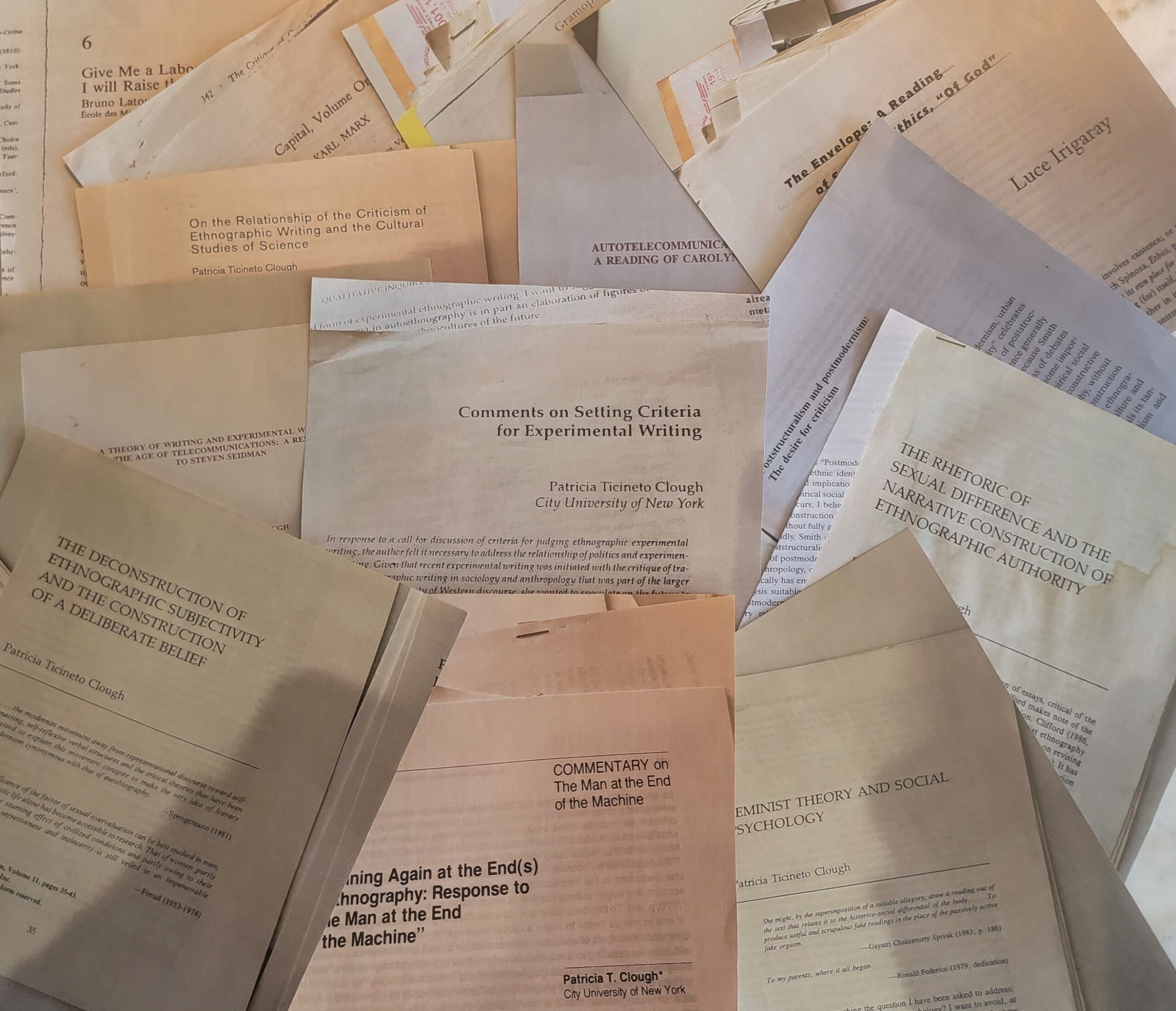House of Time
Bibi Calderaro is a transdisciplinarian weaving research, theories, and practices from art, education, technology, and ecology, blending diverse knowledge fields. Her work circulates internationally since 1995 aiming to expand regimes of perceptibility and eco-centric ethics. Her participatory sensorial walks explore ideas of hybridity within decolonial frames. Her collaborative work with the Coastal Reading Group builds ecological solidarity within and beyond the human through expanded textualities. Other collaborations with colleagues/mentors explore the body, the psycho-social and materialities within post-phenomenological thinking and affect theory. As an immigrant from the Global South living in NYC, she aims to expand urban-ecosystem praxes in the Hudson River Estuary bioregion to include non-Western paradigms/ knowledges/ practices that can further help integrate and connect humans and the more-than-human. She is the recipient of numerous awards and fellowships internationally. She is an active Board Member for Holes in the Wall Collective. She holds a Sustainability Science and Education MA degree from The Graduate Center CUNY and a MFA in Social Practice from CUNY Queens College. Bibi is a PhD student in the Urban Education program at CUNY’s Graduate Center. She is certified in Regenerative Social and Ecological Design (Omega Institute), and a Nature and Forest Therapy Guide (ANFT).
Iréne Hultman is a dance artist and performer whose research focuses on how media, affect, and speculative theories influence movements and art production. Her productions, as artistic director of Iréne Hultman Dance as well as former member and rehearsal director of Trisha Brown Dance Company, toured both nationally and internationally. She has choreographed several Opera productions and participated in artistic collaborations with both individuals and institutions such as Dia Beacon, Storm King Art Center, and Wanås Sculpture Park in Sweden. She is a recipient of grants and awards including The John Simon Guggenheim Fellowship and Foundation for Contemporary Performance Arts Award. Hultman has taught and lectured internationally at universities and institutions including École des Beaux-Art de Paris, Umeå Academy of Fine Arts, The New School, and New York University. Hultman currently serves as faculty in Theater and Performance Studies at Yale University and is involved in the global discourse of dance and performance, which continues fostering her interest in investigations and collaborations between artistic fields and geographic continents.
Talha Işsevenler, PhD is a transdisciplinary researcher who writes on theories of time and technological practices of temporalization. He teaches at City College and Queens College. In his experimental multimedia courses, he brings together ethnography, social theory, film studies, media studies, psychoanalysis and Deleuzian philosophy in order to equip students with diverse array of approaches to conduct their own research on social media. For this work, he recently received The Dewey Digital Teaching Award. In his dissertation, he analyzed new forms of time such as algoritmically customized timelines and Stories and showed the metamorphosis of subjectivity, narrative temporality and social movements under digital capacities. In 2016, he co-authored an article with Patricia T. Clough responding to the works of Kathleen Stewart and Mark Hansen in which authors discussed the possible avenues of returning to subjectivity after radical breaks introduced by the normalized nonhuman agencies. In 2018, he wrote an essay on the intentional de-cohesion in deportability. At House of Time, he published an essay on Moriah Evans and run the reading group entitled Perspectives on Digital Time For contact: [email protected]
Sandra Moyano-Ariza is a media theory and philosophy scholar currently writing her PhD dissertation at The Graduate Center, CUNY. Her research works at the intersection of philosophy and digital technology, with interests in the fields of affect theory, critical new media, speculative philosophy, new materialisms, and feminist ontologies. Her work grapples with the highly computed and accelerated experiences of love and intimacy in algorithmic romance as well as their cultural representations. She has recently traced a geneaology of the intersection of affect theory and art and literature, published by Athenea Digital both in English and Spanish. She’s also an Adjunct Lecturer at Baruch College (CUNY), where she’s been teaching world literature, and a returning Writing Across the Curriculum (WAC) fellow at York College (CUNY).
Jason Nielsen is a doctoral candidate in English at the Graduate Center, CUNY, where he also holds an MA and MPhil. His research focuses on William James, theories of affect and emotion, and approaches to pedagogy and teaching. More generally, he is interested in connections between pragmatism and psychoanalysis. He has taught writing and literature courses at Queens College, frequently teaching in early American literature, American studies, and topic-based composition courses around histories of computing and digital culture. He is currently the Program Coordinator for the Digital Humanities MA and the Data Analysis and Visualization MS Programs at the Graduate Center.
